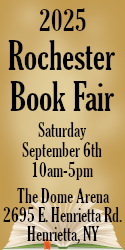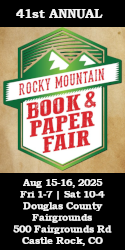On Political Realignment (or Fear and Loathing inside the Beltway)
(originally published March 17, 2017)
The U.S. Election of 2016 was a game-changer for all sorts of reasons. To say the populist revolt came as a surprise to party regulars across the political spectrum is an obvious understatement, but the resulting emotional meltdown by people still in shock over the shifting loyalty and unexpected response of traditional working class voters (many of whom had supported Democrats since the Great Depression of the 1930s), only shows that it pays to do your homework. People who follow this column will recall that in July of 2016 we explained some of the reasons why Trump would perform bigly¹ in the 2016 general election. What follows is some observation and analysis that may contribute towards an understanding of recent trends. Or maybe not.
Party labels are just that – labels and nothing more. People who make a living seeking and trying to hold on to public office sometimes learn, to their annoyance, that their own interests and those of their party base do not necessarily coincide. Republicans, commonly portrayed as the party of big business and socially conservative values, emerged from the remains of the Whigs and other anti-slavery parties of the 1850s. Democrats, since the time of FDR, have championed the working class, even though before the Civil War they represented the interests of southern slave owners, afterward opposing Reconstruction and supporting Jim Crow legislation. You may even remember (or have read about) Senator Robert Byrd, Democrat of West Virginia, who served longer than anyone in the United States Senate, and was a member of the Ku Klux Klan who helped to create a new chapter in Sophia (WV), eventually being elected to the top post of Exalted Cyclops (Do you suppose an Exalted Cyclops gets a discount when having his eye examined?). Even though Byrd gave up his membership in 1952 when running for Congress, his personal convictions nonetheless led him to oppose the Civil Rights Act of 1964, filibustering against the bill that was partly written and championed by Everett Dirksen, the Republican Senator from Illinois known as ‘the Wizard of Ooze’ for his grandiloquent speaking style on the floor of Senate. (Personal note: the only family member from my parents' generation who was not a Republican was an uncle by marriage who was a staunch Democrat and member of the Ku Klux Klan who somehow managed to keep both eyes).
So when did things begin to change? I think the shift began somewhere in the mid 1960s, with The War on Poverty or Great Society initiative announced by Lyndon Johnson during his State of the Union address in January of 1964. It was seen by a lot of people as a continuation of FDR's New Deal (not including the PWA and other infrastructure projects) and many of the programs were criticized by Republicans and Democrats alike until it was reformed by the Personal Responsibility and Work Opportunity Act of 1996 and signed into law by Bill Clinton who famously said it “ended welfare as we know it.” So far, so good.
With the official war on poverty winding down, a lot of ‘povertycrats’ were approaching retirement and facing the scary possibility of redundancy and its unpleasant consequences, which in many cases meant having to look for new jobs in the riskier private sector. Fortunately for many of them, all of this was overlapped by the need for people to staff even larger bureaucratic structures that were already being put in place to encourage, if not enforce, a new vision of society based on group-identity politics. The new ‘minoritycrats’ (a word I came up with years ago that may or may not have caught on by now) were overcome with great excitations, had great expectations and saw expanding job opportunities in the corrosive business of exploiting differences and promoting divisiveness in the general population.
Incidentally, as a child growing up in a small city in eastern New York during the 1950s, I was aware of only two groups or ‘minorities’ who were most often discriminated against in subtle and sometimes not so subtle ways – blacks (or Negroes, as black people were called in those days) and Jews. And in our part the North, even these distinctions and socially-discriminatory behaviors based on ethnic identity, were beginning to fade. Other groups (at least where we lived) were mostly assimilated because at the time the idea of e pluribus unum was still pretty cool.
National unity based on celebrating what people have in common might sound wonderful, but for aspiring minoritycrats trolling in untroubled waters it meant there might not be a paycheck at the end of the month. And so someone had to throw a stick of dynamite over the side to bring up the fish. Unity was out and ‘diversity’ was pushed as the hot new growth industry for people hoping to make a living by promoting divisiveness. Eric Hoffer says it better and more to the point – “...the technique of a mass movement... is to infect people with a malady and then offer the movement as a cure”², which directly connects to another personal story that's funny, but true.
Early in the game we received a strange questionnaire in the mail from somewhere in Syracuse. At that time, probably in the late 60s or early 70s, we were (and still are) living in Cazenovia (NY), and along with everyone else were often pestered by sales calls (usually during dinner) from people wanting to sell us storm windows, aluminum siding, and all sorts of things we could probably live without. My creative solution was to get an unlisted number but the phone company wanted to charge us an extra dollar a month just to keep our name out of the book. Thinking to outwit them (and save some money), my clever idea was to have our number listed under my wife's maiden name (R.G. Díaz). This was improvised caller ID before there was such a thing and made it easier to identify sales calls. At any rate, we opened the letter/questionnaire that was in embarrassingly bad Spanish, the gist of which was that because we had a Spanish surname and must be experiencing discrimination of some sort, we would almost certainly be in need of their help. I think one of the people behind it was a dewy-eyed cleric from Syracuse eventually nicknamed (by me) Rev. Sweetfellow McSimple. Anyway, being a teacher Raquel decided to have a little fun, fished it out of the waste basket and added it to the evening's stack of homework and papers that needed correcting. After circling and highlighting the spelling mistakes, grammatical errors, and crazy syntax it was a sea of red, and even though not one to suffer fools gladly, she felt sorry for them, gave it a barely passing ‘D’ and mailed it back. It was wonderful. I wish we'd saved a copy.
All fun aside, I think what really creeped us out was that this was probably near the beginning of the Third Reich-ish policy of getting people to register according to group identity when filling out various application forms or public documents. Whether this official divisiveness was enacted legislatively or improvised at the regulatory level, was and still remains unclear. Not since the Germany of the '20s and '30s, has such interest and enthusiasm been shown in cataloging and classifying people according to increasingly weird and unnecessary group identities based on race, ethnicity, religion, all seven sexual identities (or is it nine? I forget), native language, mental ability, shoe size, body mass index, or whatever else might bring some excitement into the lives of minoritycrats hunched like hobbits in their Foggy Bottom cubicles. But looking at the bright side, at least people aren't required to sew color-coded patches on their clothing. Yet. I don't think.
In tweet-speak lingo, what I described is sometimes called being kept on the plantation, although I don't think many of the twits who twitter (or the ladies who lunch) would get the metaphor. In the old South, the political party of the plantation owners got extra representation in Congress and the electoral college – one of the fringe benefits of having non-voting chattels counted as three fifths of a person when census and reapportionment time came around. Sweet – if you were a Democrat. Not so much if you were a slave. And in the decades before the Civil War, Democrats were still importing lots of Congressional and electoral college representation – some people say they still are. So boys and girls, meet the new boss – same as the old boss. Apparently some people really do get fooled again. And again.
Hang on, have I forgotten anyone? Anyone not officially protected? People not known for beating the drums of group victim-hood, but carry ‘kick me’ signs on their backs because of their ethnic background and where they live? People who pop culture groupies are carefully taught to laugh at and ridicule when the butt of ethnic jokes and insult on late night television? Last July I explained why the group that dare not speak its name would be the deciding factor in the 2016 election. And while minoritycrat politicians and their followers might not be the dimmest points of light in the intellectual and moral firmament (although they do little to challenge the impression that they are), I think most of the voters who decided the 2016 election are at least sufficiently intelligent and have enough self-respect to reject group-identity politics. So far.
¹ Bigly (bi·gli), adv. ME. [f.Big a.+ly] 1. With force or violence – 1556. 2. Loudly, boastfully, pompously – 1532. The Shorter Oxford English Dictionary on Historical Principles. Oxford, At the Clarendon Press, 1955.
² Hoffer, Eric. The True Believer. Thoughts on the Nature of Mass Movements. New York, Harper & Brothers, [1951]. p. 53.


























